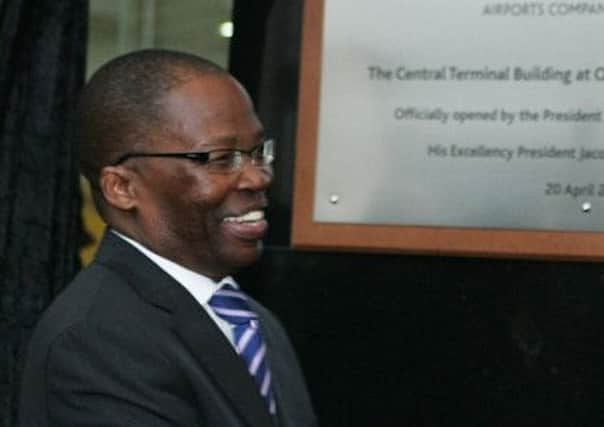G4S denies inmates given drugs and electric shocks


The Wits Justice Project, which investigates allegations of mistreatment in the justice system, said some inmates at Mangaung prison were forcibly injected with anti-psychotic medication and subjected to electric shocks.
“We do not use any form of torture or shock treatment,” a G4S spokeswoman said yesterday. She said the staff did not have access to medication and did not administer drugs, adding: “All medical decisions for inmates are handled and addressed by independent certified medical staff.”
Advertisement
Hide AdAdvertisement
Hide AdThe abuse allegations at Mangaung – the second-largest privately run prison in the world, according to G4S – follow scandals including failing to provide enough guards for the London 2012 Olympic Games and discrepancies in tagging prisoners in Britain.
Ruth Hopkins, an investigative journalist with the Wits Justice Project, said she had documented cases of beatings – including electroshock use – involving about 30 inmates. She had also documented about 20 cases of forced injections of anti-psychotic drugs.
She said: “A pattern that emerged throughout my investigation is that inmates who were considered difficult or who were involved in some problem, they would take them to the single cells in the prison, strip them naked, pour water over them, put them on a metal bed frame and use these electroshock shields to shock them.”
The Wits Justice Project is part of the journalism department of the University of Witwatersrand in Johannesburg and investigates alleged cases of mistreatment and miscarriages of justice in South Africa’s prisons and justice system.
In a formal statement reacting to the most recent allegations, South Africa’s correctional services minister, Sibusiso Ndebele, promised an investigation.
He said: “We view these allegations… in a very serious light. We will leave no stone unturned in this investigation, in order to ensure that those implicated in such inhumane acts face the consequences of their actions.”
The allegations came after the department of correctional services took over the facility on 9 October because the private security firm “lost effective control” of the 3,000-inmate establishment, a senior prisons official said yesterday.
James Smalberger, chief deputy commissioner of incarceration and corrections, said safety and security issues at the prison were under scrutiny well before the most recent allegations.
Advertisement
Hide AdAdvertisement
Hide AdHe said: “There were assaults, there was labour unrest, there were hostage situations, that were a clear indication that there was not effective control.”
These issues, in addition to the latest Wits allegations, are now the subject of an official investigation into the management of the Mangaung Private Correctional Centre, which had been run by G4S, the world’s biggest security firm, since 2001.
Smalberger said: “When you have a contract, there are requirements that you must comply with.”
He did not say his department had confirmed the mistreatment allegations made by the Wits group, but the department was looking into them as part of its overall investigation.
The problems at the facility were exacerbated when G4S dismissed more than 300 of its workers after a labour dispute.
The company said it had asked the department of correctional services for assistance, and it decided step in and to manage the prison on an interim basis. “We are very happy to have their help,” a G4S spokeswoman said.
Mangaung was only one of two prisons out of the 243 correctional facilities in South Africa that were privately run, Smalberger said. The South African government had decided in 2010 not to pursue a policy of public/private partnerships in the running of prisons.